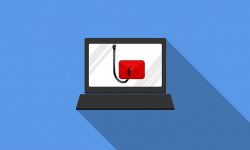8 tips to avoid a spyware attack

Spyware refers to software that spy on your Internet browsing activities, record keystrokes, and collect almost any type of data including your personal information such as credit/debit card or banking details, login IDs and passwords. In this post, we share 8 tips to avoid a spyware attack and keep your data safe.
8 tips to avoid a spyware attack
#1. Disable the autorun feature
Whenever you plug in any USB device into your computer, if a window pops up giving you options to view folders or files, then your system’s autorun feature is enabled. This feature is one of the common ways malware such as Trojans, worms, spyware, etc., get automatically installed on your system.
#2. Be wary of free adware
The Internet is swarming with free software; you think of it, and it’s there. While most of them can be useful, you never know if they contain malicious applications. Even the most innocent-looking software can be packed with spyware. Always research the source before trusting it to make changes on your computer.
#3. Beware of pop-up ads, especially unwanted and those shouting about awards
You must have come across online ads that pop out of the blue. Never respond to such ads in any way. Even if they display the “Cancel” or “Close” buttons, do not click it. Simply right-click on the border of the window at the top and select “Close”.
#4. Never download attachments in emails from unknown or unsolicited senders
The statement speaks for itself. Always exercise caution before clicking on links or downloading attachments in unexpected email messages; especially emails from unknown senders. You may also receive emails that seem to be from your bank or trusted online store. Even in such cases, exercise the same precaution. Even if you should access the link, first verify its URL and manually type it in your Internet browser.
#5. Get Browser Sandbox protection
Drive-by downloads are an improvement to the way how malware infect your computer via compromised websites. By just visiting such websites, malware may get automatically downloaded on your system. This is one of the common ways spyware infect computers. Browser sandbox protection takes your Internet browser into a virtual environment. Any file that you download or gets downloaded from the browser, remains isolated in this environment and is blocked from causing any damage to the real computer.
#6. Turn ON popup blocker
One easy way to block popup ads is to use the popup blocker in your browser. However, it should be noted that, some websites may require popups for certain functions. So, you may choose to turn OFF this feature for your trusted websites.
#7. Keep OS and other software up-to-date
An outdated OS or a software could be a cybercriminal’s doorway to your computer. An outdated software contains vulnerabilities which can be easily manipulated by a hacker to plant spyware and other malware on your system.
#8. Use a multilayered antivirus solution
The present day malware is nowhere close to what it used to be in its yesteryears. With time, attackers have learned to make their malware more inconspicuous, adaptable, resilient and more damaging. A common antivirus cannot protect you from all such threats at the same time. Choose an antivirus that can not only take down spyware, but all kinds of malware in the wild – known and unknown. It must also be equipped with sandbox protection as discussed earlier, and a keen web protection feature that can block fraud and infected websites.
If you found this article helpful, share it with your friends and followers on Facebook, Twitter or WhatsApp (on your phone).


No Comments, Be The First!